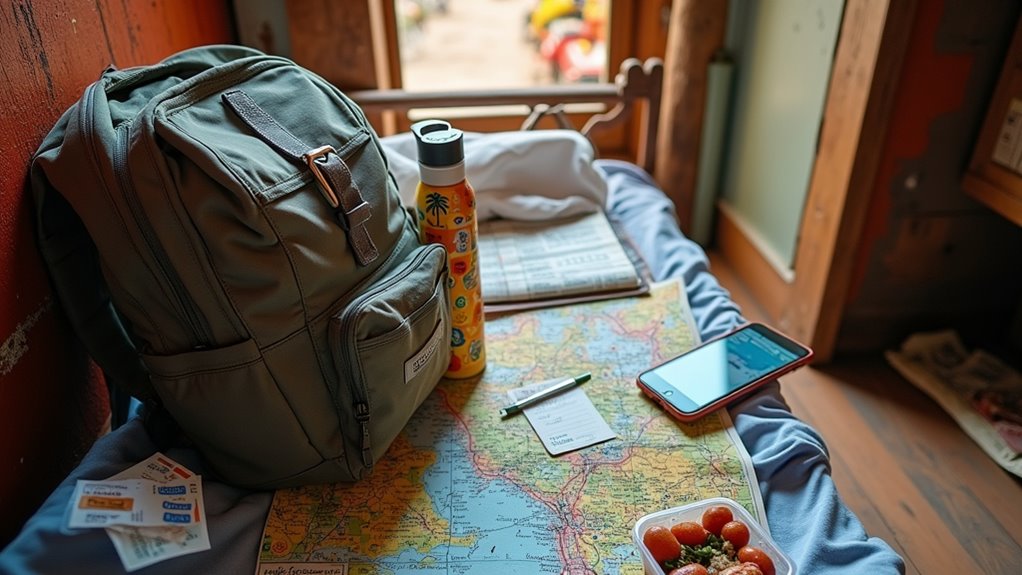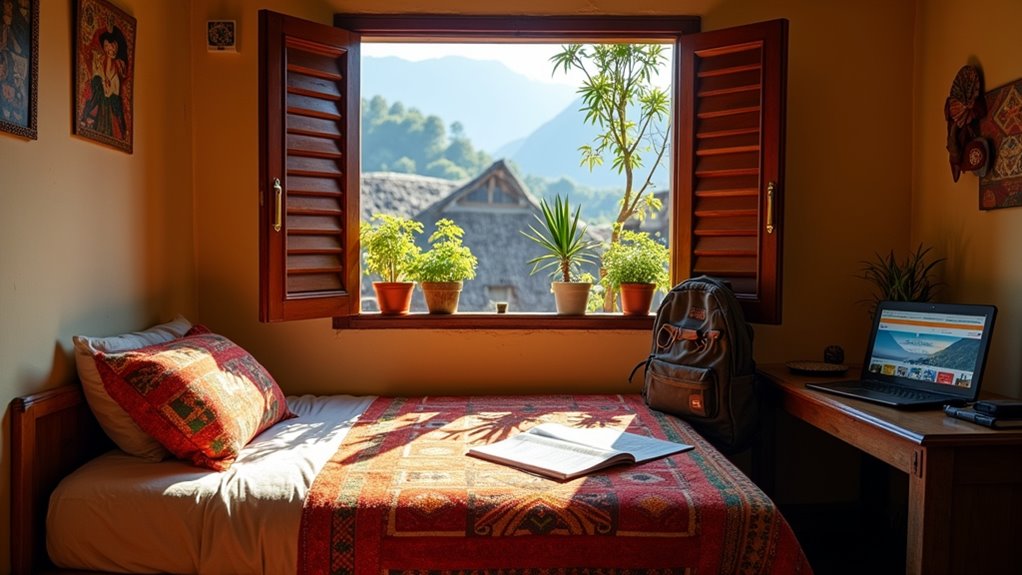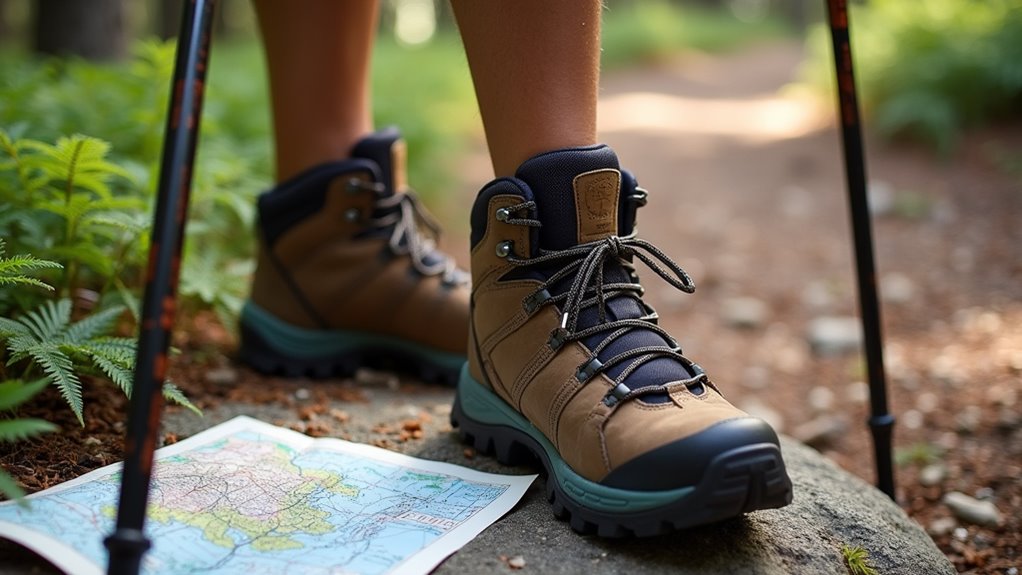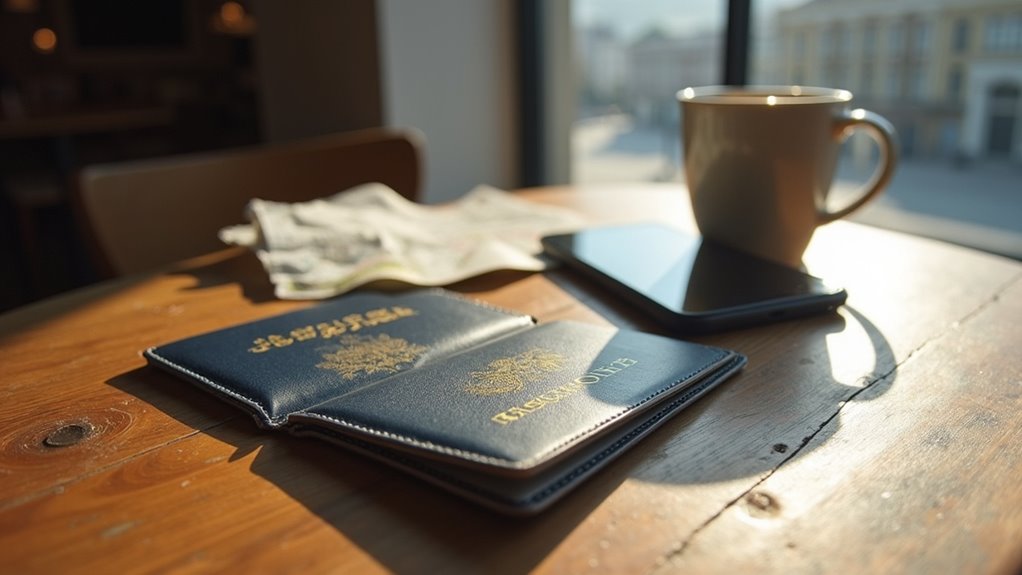You can travel on a limited budget by booking flights early, focusing on destinations with a low cost of living, and selecting affordable accommodations like hostels, guesthouses, or Airbnb options outside city centers. Use public transportation, walk, or cycle to save on transit costs, and choose local eateries or prepare your own meals to minimize food expenses. Prioritize free or low-cost attractions, set a daily spending limit, and track your expenses—following these steps lets you maximize adventure despite financial constraints, with more strategies ahead.
Although traveling can seem expensive, adopting strategic approaches allows you to explore new destinations without exceeding your budget. By planning ahead, you can secure better deals—booking transportation for shorter vacations six to nine months in advance is 56% more likely to result in cheaper options. Early planning also gives you the flexibility to choose budget-friendly destinations and accommodations, avoiding last-minute costly decisions.
Strategic planning and early bookings unlock affordable travel, letting you explore new places without breaking your budget.
Online tools like Skyscanner make it easy to compare prices across airlines and booking sites, while booking during off-peak seasons or on less popular days, such as Wednesdays, often leads to significant savings. The majority of consumers seek the cheapest or reasonable options when booking, so using comparison tools and flexible dates can help you align with this trend for even greater savings. As more travelers embrace digital payments for convenience and discounts, using mobile apps to pay can sometimes unlock further savings or exclusive deals.
Selecting destinations with lower costs of living is essential if you want to stretch your funds. These areas typically offer affordable accommodations and activities, and you’ll benefit from researching local customs to navigate daily expenses more efficiently. Many destinations have free or low-cost attractions, and traveling during the off-season can offer similar experiences to peak times at a fraction of the price.
When it comes to lodging, consider budget accommodations like hostels or guesthouses, and leverage sharing economy platforms such as Airbnb for more affordable options. For the truly adventurous, couchsurfing options can provide completely free accommodation while connecting you with locals. Booking outside city centers generally reduces costs, and reserving well in advance secures better rates.
For longer trips, staying in an apartment allows you to save on meals by cooking for yourself.
Transportation costs can be managed by using public transit, which is almost always cheaper than taxis or ride-sharing services. Many cities offer travel passes for unlimited rides, and walking or cycling in pedestrian-friendly areas is both economical and healthy.
Transportation apps provide real-time information so you can find the most cost-effective routes.
For food, avoid tourist restaurants and opt for local eateries, street food, or markets. Preparing your own meals or limiting dining out to once a day further reduces expenses, and drinking tap water instead of bottled water adds up to significant savings.
Finally, prioritize free or low-cost attractions, plan activities ahead to avoid impulsive spending, and use apps to find discounts. Set a daily budget, track your expenses with travel apps or spreadsheets, and take advantage of travel rewards or favorable exchange rates to maximize every dollar you spend.









